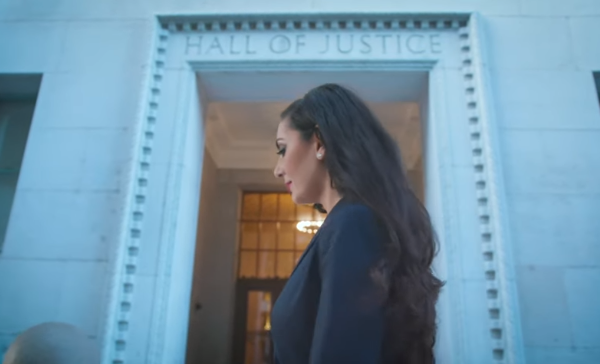If you reside in Los Angeles County, and believe you are under investigation for a crime, it is very important that you contact an attorney immediately. Utilizing information you are provided by one of our attorneys at Los Angeles DUI Attorney Law Firm during your FREE consultation will allow you to ensure that your rights are not being violated. If you are under investigation for a crime, it is important that you take precautions by avoiding doing, or saying, anything that may jeopardize your case. While it is common sense, it bears mentioning; if you are being contacted by investigators, or if people you know are being contacted by investigators regarding you, you are under investigation for something. If you are being investigated, do not be confused about the reason for it; the investigator is attempting to gather information sufficient to support the issuance of a warrant. Once the investigator has gathered information that amounts to probable cause to arrest you for a crime, they will submit an affidavit to the court detailing the facts that support probable cause, and the magistrate will approve it. At this point you will be arrested and charged with the crime. It is important that you do not make critical mistakes while being investigated. The longer it takes the investigator to build the case against you, the more time you and your attorney have to prepare a formidable defense. Retaining an attorney from Los Angeles DUI Attorney Law Firm to protect your rights, and the strength of your case.
Investigators with the Los Angeles Police Department have substantial training in the science of investigation, and are particularly skilled at obtaining incriminating information sufficient to support a criminal charge against you. As a result of their skill, the inherently intimidating nature of being questioned by police, and the desire to avoid punishment, people tend to provide much more information than necessary. It should be noted, you are not obligated to talk to an investigator who approaches you, and you don’t even have to stop when they approach you. Until you are under arrest, they cannot force you to stop. Even then, they must read you your Miranda rights, which inform you of your right to remain silent; exercise that right. Regardless of how you are being questioned, do not respond to an investigator until you have obtained counsel, who will take steps to protect you during questioning.
WHAT HAPPENS WHILE I AM UNDER INVESTIGATION?
The length of time if will take a Los Angeles Police Department investigator to gather sufficient information to initiate an arrest depends entirely on the nature of the crime you are suspected of committing, and how much information the investigator has at their disposal. During this point in time, you have not been arrested, or charged, with a crime, but it is suspected that you are the person who committed the crime. The investigator will utilize their training and contact you, your friends, your family, and anyone else you are associated with. Neither you, nor anyone else, are obligated to answer the investigator’s questions. If you are under the impression that you are under investigation for a crime, contact an attorney from Los Angeles DUI Attorney Law Firm. Having one of our attorneys working for you during the investigation period can have many tangible benefits on the outcome of your case; as well as providing you with peace of mind during what is likely a stressful period of time. First, having an attorney working for you during this time will allow your attorney to begin researching, and provide the best way to respond to an investigator if you are so inclined. Responding to an investigator can have a profound impact on whether or not they have enough evidence against you to obtain an arrest warrant. Our highly trained attorneys can contact law enforcement early in the process to ensure that potentially damaging tests are conducted in accordance with the law; finger printing, interviews, line-ups, and other evidence gathering tactics can have a significant impact on the outcome of your case. Additionally, having a skilled attorney can ensure the protection of your rights, minimize the charges against you, and in some cases your attorney may be able to reach an informal resolution of your case with the District Attorney before any formal charges are filed against you. Prosecution cannot always be avoided, and having an attorney working on your case early in the process will allow them to request a voluntary surrender on the charges to avoid the stigma of being arrested in front of people you know. Your attorney will also help make arrangements for bail to keep your period in custody at a minimum. This article is focused on what to do while you are being investigated; in short don’t say anything to anyone about what you are being investigated for. You can’t be arrested based on information the investigator does not have.
WHY SHOULDN’T I TALK TO THE POLICE
The investigator’s job is to obtain information, and evidence, which will amount to “probable cause.” The reason the officer needs to reach the “probable cause” threshold is because the 4th Amendment sets the requirements for an arrest warrant at “probable cause.” “Probable cause exists where the facts and circumstances within the officer’s knowledge and of which they had reasonably trustworthy information are sufficient in themselves to warrant a man of reasonable caution in the belief that an offense has been or is being committed.” Naturally, they would like their job to be easy, and so they approach people suspected of committing the crime in the hopes that they will provide some information that he investigator can use to tie them to the crime they are under investigation for. In the event you are approached by an investigator, it is best to simply not talk to them. The investigators are highly trained, and have the ability to pull out information you do not want them to have through series of questions. Ultimately, every piece of evidence the investigator gathers will be presented against you in your criminal trial; it is the best policy to avoid handing the Prosecutor the case against you on a silver platter.
EXAMPLE:
Investigator Tom is assigned finding an individual who hit a parked vehicle and left the scene sometime in the early morning on Saturday. He talks to the owner of the vehicle that was hit, as well as the owner’s neighbors and discovers that there is someone who frequently drives down that street late at night in a manner that suggests they are driving drunk. Utilizing that information, Tom deduces that the person who committed this crime likely lies in the area, as they are familiar with this road, and frequently drive down it. Eventually, Tom comes across a vehicle that looks like it was in an accident recently. Tom takes a picture of the vehicle and puts that in his file. Tom then approaches the owner of the vehicle, Dan, and begins talking to him. While talking, Tom learns that Dan had recently been in a minor accident, that Friday night he was out drinking with his friends, he got home sometime Saturday morning, and at the time of the accident he was at his friend Albert’s house. Tom is fairly confident, based on Dan’s statements that Dan was the person who committed the crime, but decides to get one last piece of evidence. Tom talks with Albert, and tricks him into admitting that he was not with Dan at the time of the accident. Tom takes the picture, a declaration regarding the information Dan provided him and a declaration regarding the information Albert provided; namely that Dan lied about his whereabouts. Tom submits this information to a magistrate, and an arrest warrant is issued. Dan is arrested later that day on DUI hit and run charges.
Had Dan not said anything to Tom when he was approached, the only information Tom would have is the likelihood that the vehicle involved in the hit-and-run was in the neighborhood, it might be Dan’s car, and that is all. By talking to Tom, Dan gave him the name of someone else to ask questions to, which increased the chances of eliciting incriminating evidence sufficient to support an arrest warrant. Had Dan opted to no talk to Tom, Tom would have to find other ways to determine if Dan’s car was the vehicle involved in the hit-and-run. Ultimately, Tom will gather sufficient evidence, but all of that is time Dan could have spent with his attorney preparing his defense and exploring his option.
DO NOT TALK TO ANYONE ABOUT YOUR CASE!
As mentioned above, an investigator will contact you for information, as well as other people who might have relevant information. Also mentioned above, the investigator asking the questions has been trained to elicit information from everyone they talk to. This means that every piece of information you provide to another person can be elicited from the investigator. In the example above, if Dan had told Albert that he had hit a vehicle while driving home the previous night, it is entirely possible that Tom could have pulled that information out of Albert as well. The end result of that would be a conviction for a DUI hit and run. The most important thing to take away from this article is this: if you are being investigated on suspicion of committing a crime, do not talk to an investigator until you have contacted an attorney at Los Angeles DUI Attorney Law Firm.
HOW DOES HAVING AN ATTORNEY BENEFIT ME IF I’M BEING INVESTIGATED?
Having an attorney in your corner from the beginning of the criminal process, which in this case means investigation, can provide substantial benefits to the outcome of any case that might be brought against you. By providing advice regarding your interactions with the investigator, and having additional time to prepare a defense for your case, your attorney can effectively eviscerate any charges against you.
If you are currently under investigation for a DUI crime, contact Los Angeles DUI Attorney Law Firm at 424-285-5400 for a FREE consultation.




















